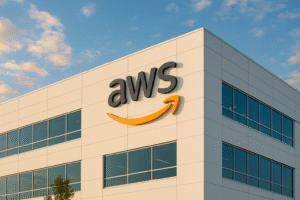Cloud computing continues to reshape the global technology landscape, and Amazon Web Services (AWS) remains at the forefront of this transformation. For professionals seeking a competitive edge, following a clear AWS Engineering Roadmap is essential. Whether you are an entry-level engineer, a career switcher, or an experienced IT professional, understanding the skills, tools, and certifications required will help you excel in this rapidly evolving field.
In this blog, we will break down the AWS Engineering Roadmap step by step. We will explore core technical skills, advanced concepts, certifications, and future career opportunities. Moreover, we will highlight why AWS remains the leading choice for enterprises worldwide and how you can strategically align your career goals with its roadmap.
Why AWS Matters in 2025
Before diving into the roadmap, it is important to understand why AWS is so crucial for professionals.
-
Market leadership: AWS continues to dominate the cloud market, with a significant share compared to Microsoft Azure and Google Cloud.
-
High demand: Employers across industries are actively seeking AWS engineers to design, deploy, and maintain cloud solutions.
-
Future-proof careers: With businesses increasingly adopting cloud-first strategies, AWS engineers remain indispensable.
-
Innovation opportunities: AWS provides hundreds of services ranging from AI to serverless computing, enabling professionals to work on cutting-edge projects.
Thus, building your career around AWS is not just smart—it is strategic.
Read More: UK AWS Engineering: Hybrid Multi-Cloud Solutions
Step 1: Build Strong Foundations
Every AWS Engineering Roadmap begins with the basics. Without a solid foundation, professionals struggle to grasp advanced concepts.
Learn Core Cloud Concepts
Start with an understanding of:
-
Cloud computing models (IaaS, PaaS, SaaS)
-
Shared responsibility model
-
Global infrastructure: regions, availability zones, and edge locations
Gain Linux and Networking Knowledge
As most AWS environments rely on Linux servers and strong networking principles, you should:
-
Master command-line operations
-
Understand TCP/IP, DNS, VPN, and load balancing
-
Learn VPC configurations and security groups
Develop Scripting Skills
Python, Bash, and PowerShell are highly recommended for automation tasks. Scripting knowledge allows you to create efficient, scalable solutions.
Transitioning from traditional IT to cloud engineering requires commitment, but once you master the fundamentals, advanced AWS services become easier to adopt.
Step 2: Learn Core AWS Services
The AWS Engineering Roadmap highlights specific services that professionals must master:
-
Compute: EC2, Elastic Beanstalk, Lambda
-
Storage: S3, EBS, Glacier
-
Databases: RDS, DynamoDB, Aurora
-
Networking: VPC, CloudFront, Route 53
-
Security: IAM, KMS, Security Hub
Transition words like furthermore, in addition, and moreover will help you connect these services logically when building solutions. For example, an engineer might combine EC2 (compute), S3 (storage), and IAM (security) to design a scalable application.
Step 3: Obtain AWS Certifications
Certifications validate your expertise and enhance career opportunities. The roadmap usually follows this order:
-
AWS Certified Cloud Practitioner – Beginner level, focusing on cloud fundamentals.
-
AWS Certified Solutions Architect – Associate – Builds core design and deployment skills.
-
AWS Certified Developer – Associate – Focuses on application development using AWS.
-
AWS Certified SysOps Administrator – Associate – Strengthens operational and monitoring expertise.
-
Professional Level Certifications – Solutions Architect and DevOps Engineer at the professional tier open doors to senior-level roles.
-
Specialty Certifications – Cover niche areas like Machine Learning, Security, or Data Analytics.
Acquiring certifications demonstrates commitment and deep technical knowledge, which employers highly value.
Step 4: Develop Practical Skills
While certifications prove knowledge, hands-on practice ensures long-term success. The AWS Engineering Roadmap emphasises continuous lab work and real-world projects.
-
Create AWS Free Tier Projects: Deploy static websites, build serverless applications, or set up a database system.
-
Use Infrastructure as Code (IaC): Learn tools like AWS CloudFormation and Terraform to automate deployments.
-
Monitor and Optimise: Gain experience with CloudWatch, CloudTrail, and Cost Explorer to enhance performance and reduce costs.
Transitioning from theory to practice builds confidence and demonstrates applied problem-solving skills.
Step 5: Advance to DevOps and Automation
In today’s engineering landscape, cloud engineers are expected to embrace DevOps principles.
Key DevOps Tools in AWS
-
AWS CodePipeline: Automates release pipelines
-
AWS CodeDeploy: Simplifies deployments
-
AWS CodeBuild: Manages build processes
-
Elastic Container Service (ECS) & Kubernetes (EKS): Handle container orchestration
By combining AWS services with automation tools, engineers can streamline development and operations. Moreover, DevOps expertise places you at the centre of modern IT transformation.
Step 6: Focus on Security and Compliance
Security is not optional—it is a cornerstone of the AWS Engineering Roadmap.
-
Learn IAM best practices: multi-factor authentication, least privilege, and identity federation
-
Understand encryption: at rest and in transit
-
Explore compliance frameworks: GDPR, HIPAA, and ISO standards
As more organisations migrate sensitive workloads to AWS, engineers with robust security knowledge stand out in the job market.
Step 7: Specialise in Advanced Domains
To differentiate yourself, consider specialising in one of the following areas:
-
Machine Learning with AWS SageMaker
-
Big Data with AWS EMR, Kinesis, and Redshift
-
Serverless Architecture with AWS Lambda and API Gateway
-
Artificial Intelligence services such as Polly, Rekognition, and Lex
Transition words such as consequently, as a result, and therefore will help you connect your expertise to business outcomes. Specialisation not only deepens your technical skills but also enhances your value to employers.
Step 8: Keep Learning and Stay Updated
Technology evolves rapidly, and AWS frequently introduces new services. To stay relevant, professionals should:
-
Regularly read AWS documentation and blogs
-
Join AWS webinars and events
-
Participate in online communities and forums
-
Experiment with new releases in the AWS console
Adopting a lifelong learning mindset ensures you remain ahead of industry trends.
Read More: The Power of Authenticity: Aligning Personal Branding for Real Success
Career Opportunities with AWS Engineering
Following the AWS Engineering Roadmap leads to diverse career opportunities, including:
-
AWS Solutions Architect
-
AWS Cloud Engineer
-
DevOps Engineer
-
Cloud Security Specialist
-
Data Engineer
-
Machine Learning Engineer
Furthermore, salaries for AWS-certified professionals remain significantly higher than average IT roles, making this career path both rewarding and future-proof.
Conclusion
The AWS Engineering Roadmap is not merely a guide—it is a career blueprint. From mastering cloud fundamentals and AWS services to obtaining certifications and specialising in advanced areas, professionals can systematically build expertise and unlock exciting opportunities.
Transitioning through each stage equips you with the technical skills, practical knowledge, and confidence to thrive in cloud engineering. By staying consistent, embracing hands-on projects, and keeping up with AWS innovations, you can future-proof your career and position yourself as an indispensable cloud professional in 2025 and beyond.
Get Personal Branding with complete interview assistance for UK jobs: www.brandme4job.com
Get your CV checked and improve it with section-based, detailed recommendations, for free: Brand Me 4 Job Free CV Check!
Join www.stunited.org to build a wide network in the United Kingdom.
Contact us to get Career Assistance in the UK: Call Us Now!
To get regular job, career, and industry updates along with important UK jobs-related information, follow us on: Instagram, LinkedIn & Facebook





